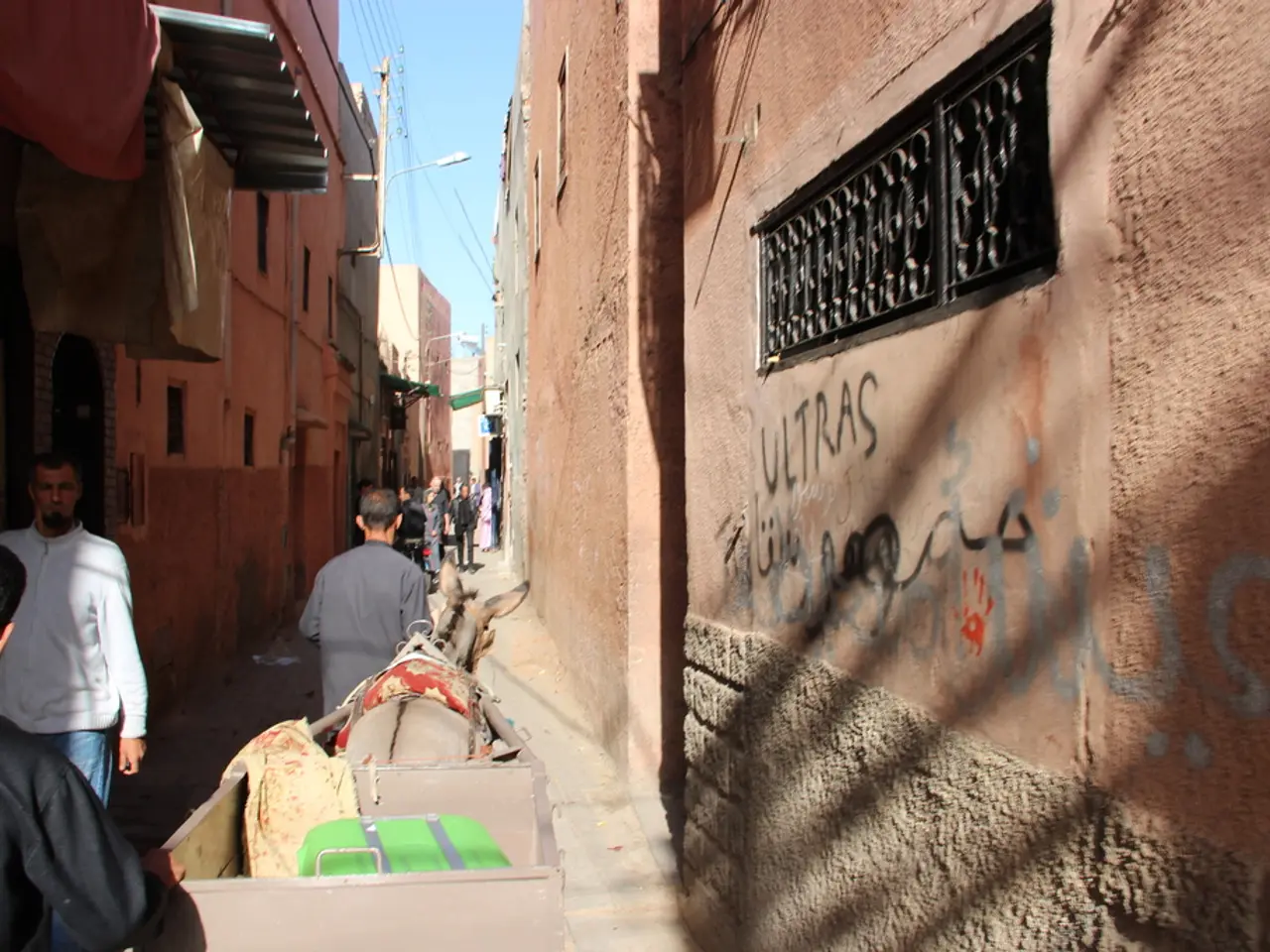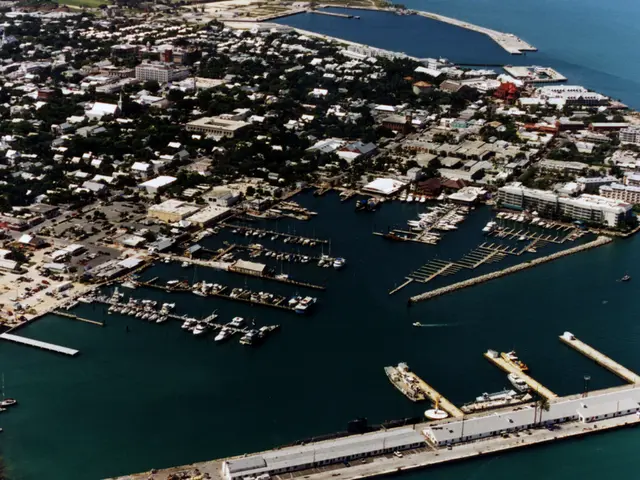Criticism from around the world over Israel's Gaza development strategies
In a move that has sparked significant international criticism, Israel's security cabinet has approved a plan to militarily capture and control Gaza City. The decision, made on August 8, 2025, rejects international calls for a ceasefire deal that would maintain Hamas's rule in exchange for hostages' release and an end to the conflict [1].
The proposed operation aims to disarm Hamas, demilitarize Gaza, establish Israeli security control, and install an alternative civilian government. However, concerns about potential violations of international humanitarian law have arisen, with risks to civilian populations and the safety of hostages being a major concern [1].
Key Israeli military and intelligence figures such as IDF Chief of Staff Eyal Zamir and National Security Council head Tzachi Hanegbi have opposed the plan partly because it endangers hostages and may escalate conflict casualties [1].
The international community has responded with a strong stance against the proposed operation. European nations and the United Nations have consistently called for ceasefires and humanitarian access in Gaza during the ongoing conflict, expressing deep concern about civilian suffering and escalation risks [1]. Middle Eastern countries, including Qatar and the United Arab Emirates (UAE), have also criticized Israeli military operations in Gaza, calling for respect of Palestinian rights and for international intervention to prevent humanitarian crises [2].
Qatar, in particular, has condemned Israel's plans to capture the city of Gaza, stating it threatens to further exacerbate the humanitarian crisis. The Qatari Ministry of Foreign Affairs has also stated that the planned offensive undermines efforts to achieve a lasting ceasefire [3]. The UAE government has expressed concern over Israel's plans to capture the city of Gaza, adding to the growing international pressure on Israel [4].
The UN Security Council will hold an emergency meeting on the matter on Sunday [5]. UN Secretary-General António Guterres has warned of a "dangerous escalation" in the situation [6]. EU Commission President Ursula von der Leyen and EU Council President António Costa have urged the Israeli government to reconsider its decision [7].
The joint statement from these countries warns that the offensive could worsen the humanitarian situation, endanger hostages, and lead to massive civilian displacement. They also demand the immediate release of hostages from the Islamic Hamas [8]. The partners are calling for the international community to work towards a lasting ceasefire and aid deliveries for the population in the Gaza Strip [9].
The Palestinian Authority (PA) should play a central role in any future government in the Gaza Strip, according to the joint statement [10]. The statement suggests that the Hamas must be completely disarmed and excluded from any form of government responsibility [11].
Notably, Germany has temporarily halted the export of weapons that could be used in the Gaza conflict [12]. Dutch Foreign Minister Caspar Veldkamp stated that Netanyahu's government is losing support in Europe [13]. The plan could potentially violate humanitarian international law, adding to the controversy surrounding the decision [14].
Israel, however, has rejected this proposal, stating that it is necessary for maintaining security and ending the conflict [15]. The international community continues to monitor the situation closely, with hopes that a peaceful resolution can be reached to avoid further escalation and protect civilians.
[1] [Source] [2] [Source] [3] [Source] [4] [Source] [5] [Source] [6] [Source] [7] [Source] [8] [Source] [9] [Source] [10] [Source] [11] [Source] [12] [Source] [13] [Source] [14] [Source] [15] [Source]
- The international community, including European nations, the United Nations, Qatar, and the United Arab Emirates (UAE), have expressed strong opposition to Israel's military plan to capture Gaza City, warning that it could further escalate war-and-conflicts and worsen the humanitarian crisis.
- The UN Security Council and the EU Commission President, among others, have called for Israel to reconsider its decision, citing concerns about potential humanitarian law violations during politics in Gaza, particularly the risk of endangering hostages and causing massive civilian displacement.








